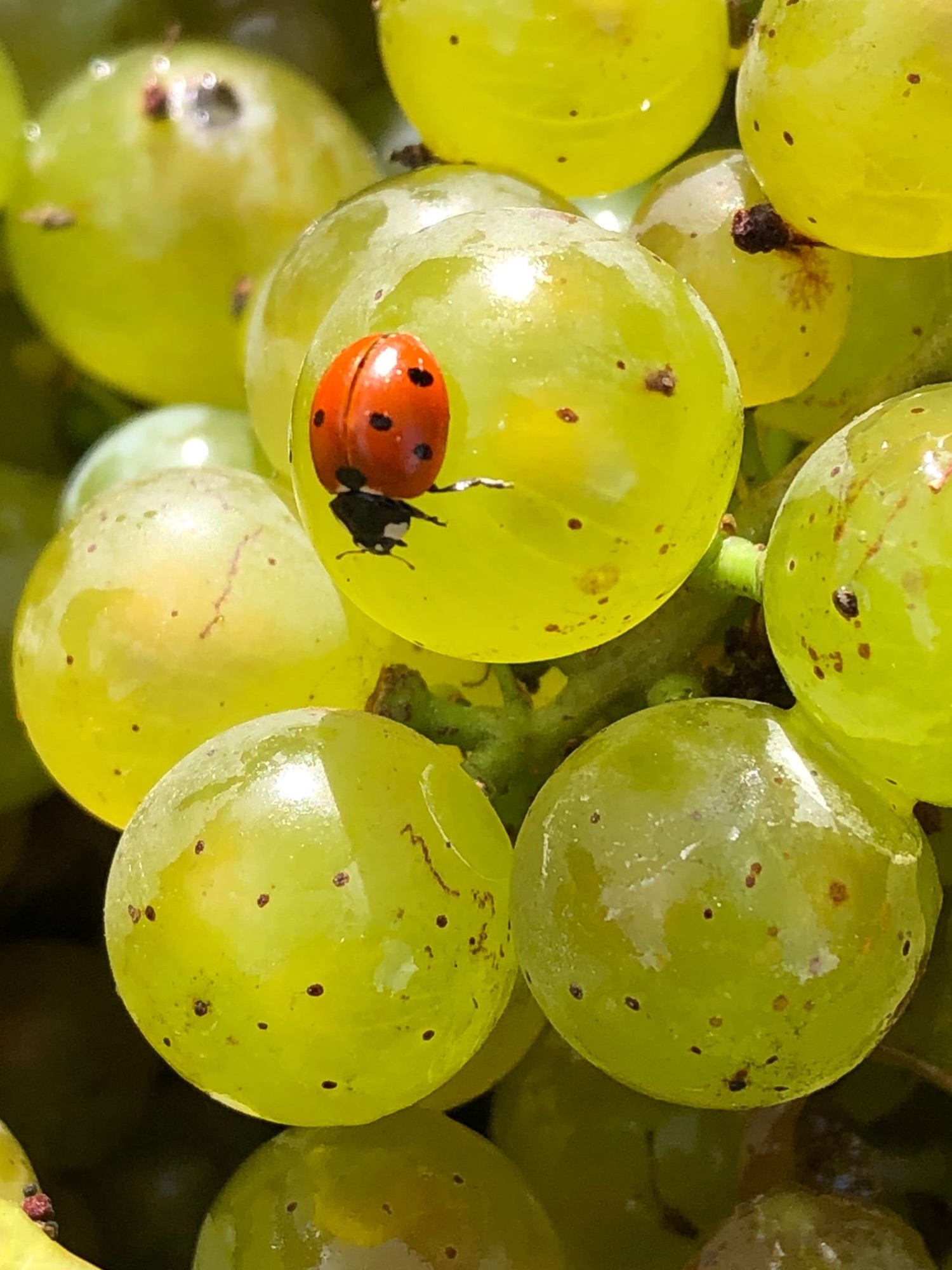Yet another great harvest day at Alex Saltaren in Oestrich-Winkel in the Rheingau.
After looking forward to this event the whole year, it finally took place. Happy to reconnect with the crowd of harvesters, an established community with great expertise, while also welcoming new wine friends every year.
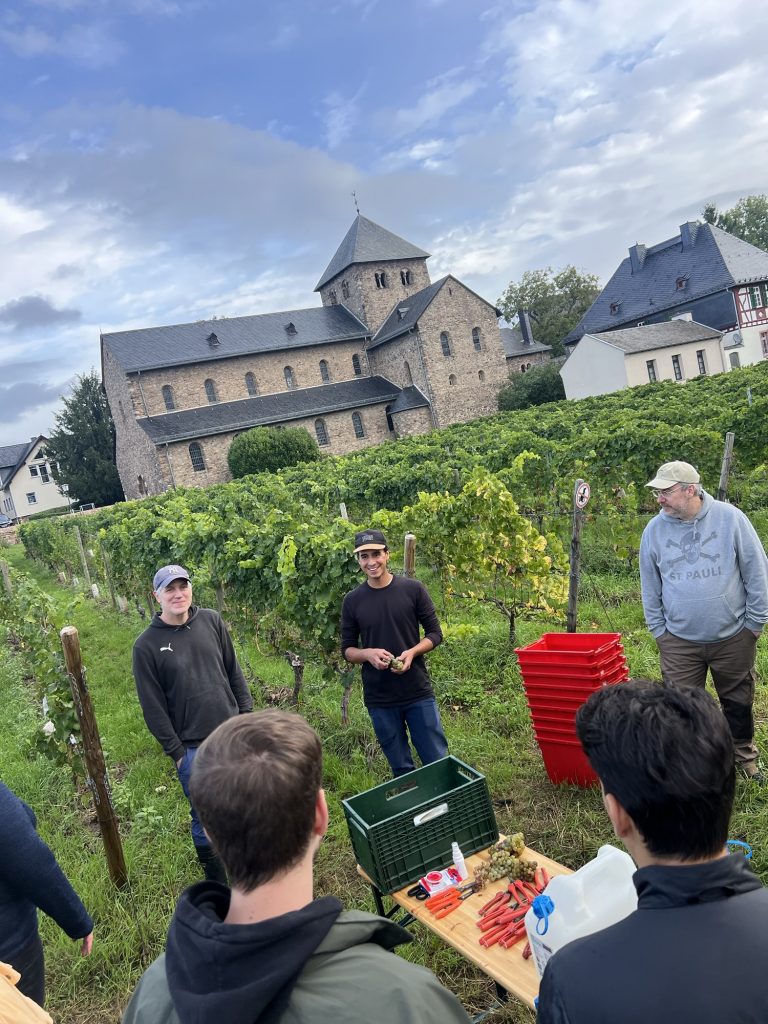
Alex Saltaren Castro, originally from Cali, Colombia, found his passion for wine early on. He pursued his education in Buenos Aires at South America’s top sommelier school before working in a prestigious hotel. He then moved to Germany, where he became fascinated with German wine and enrolled at Geisenheim.
After an internship at Weingut Schloss Vollrads, he began working for Peter Jakob Kühn. This experience profoundly influenced his philosophy of winemaking, which he now approaches holistically, with a focus on meticulous, biodynamic work in the vineyard. In 2019, Alex acquired a parcel in St. Nikolaus, where he produces “Edilia,” a Riesling made with minimal intervention. In 2020, he acquired another parcel for his Riesling “Labeja.”
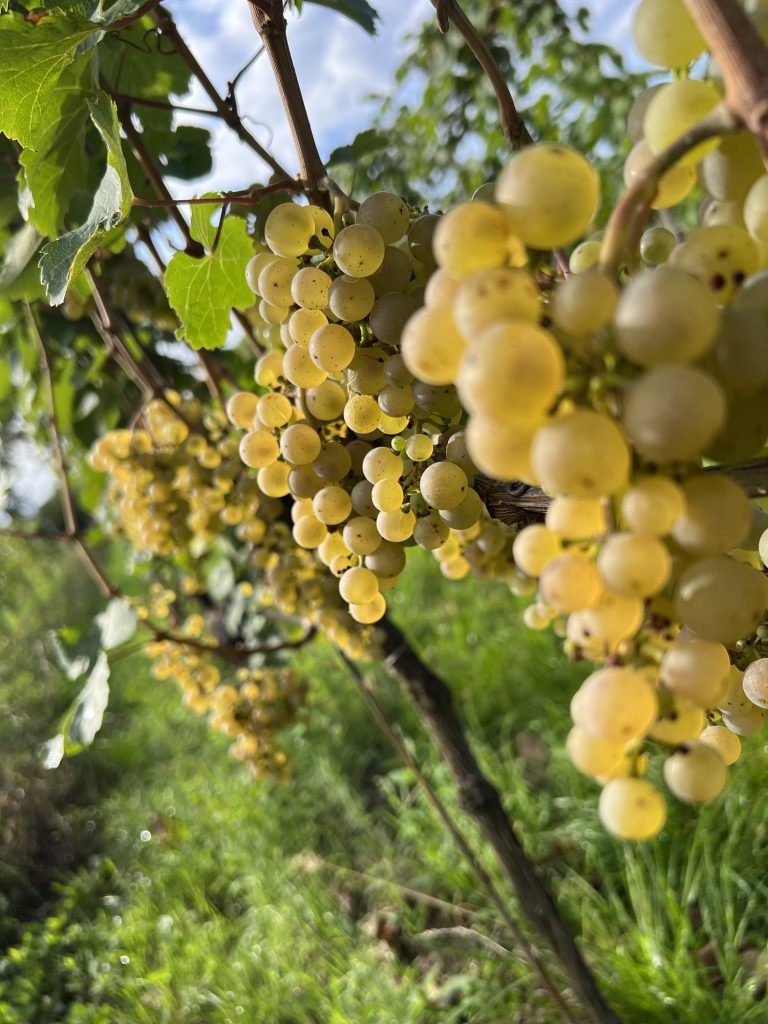
The harvest began at nine in the morning. The team, eager and well-rested, gathered in the cool vineyard air. With baskets and shears in hand, they systematically moved down the rows, carefully selecting the ripe grapes. It was a perfect start to a beautiful, productive day.
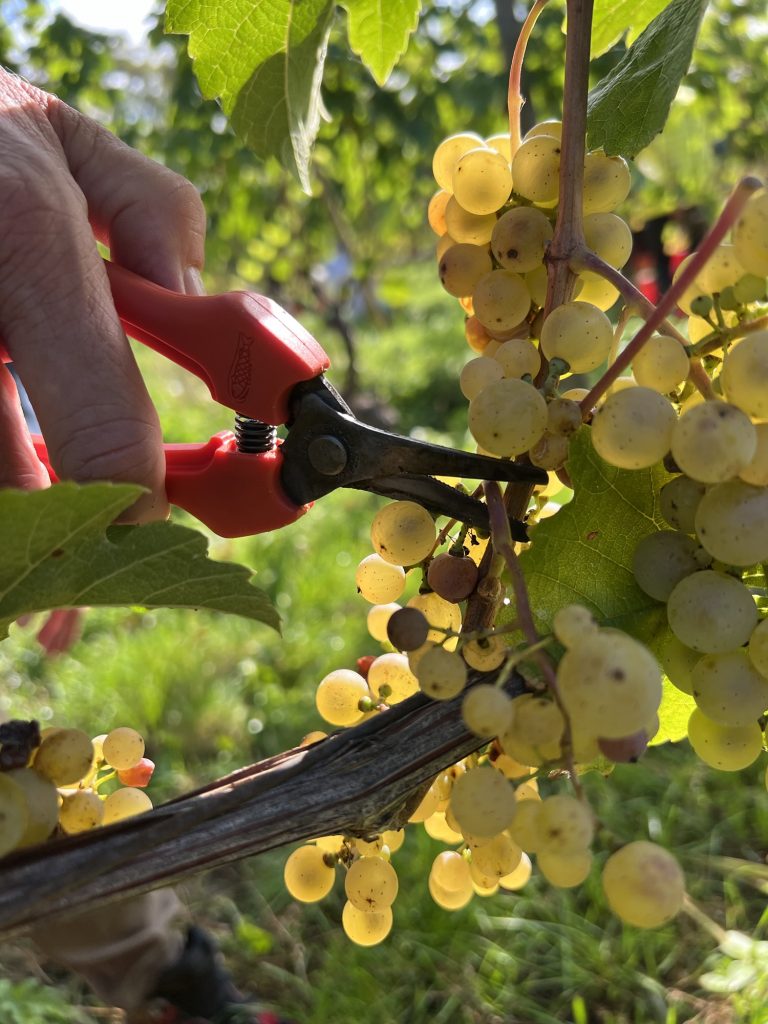
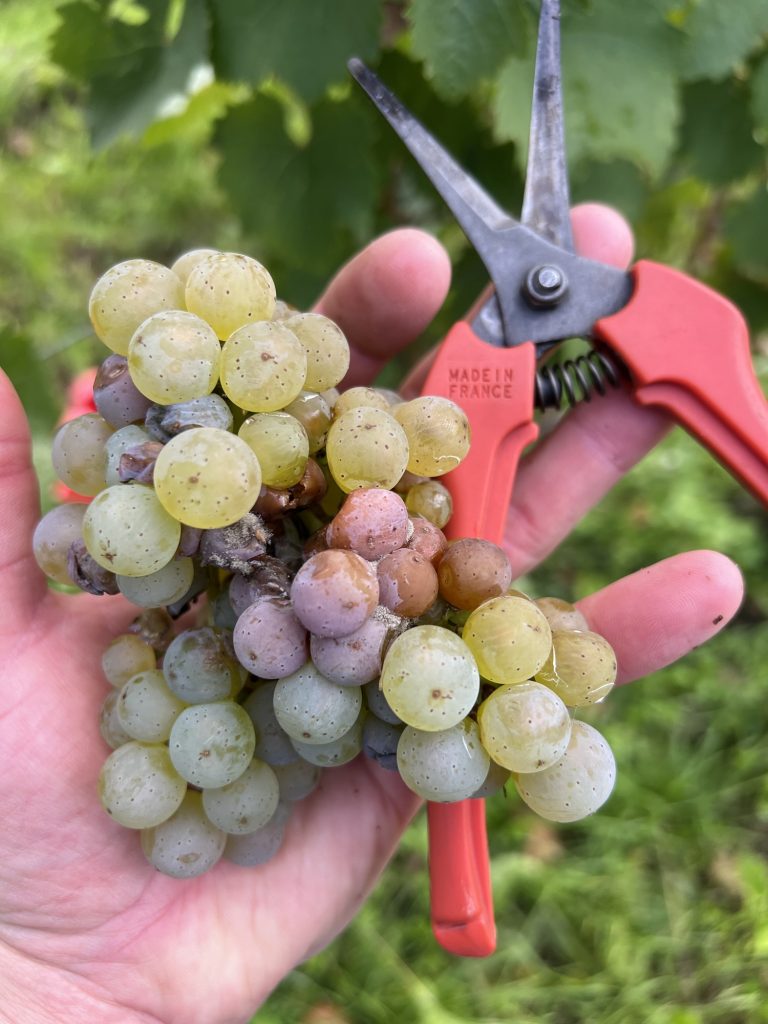
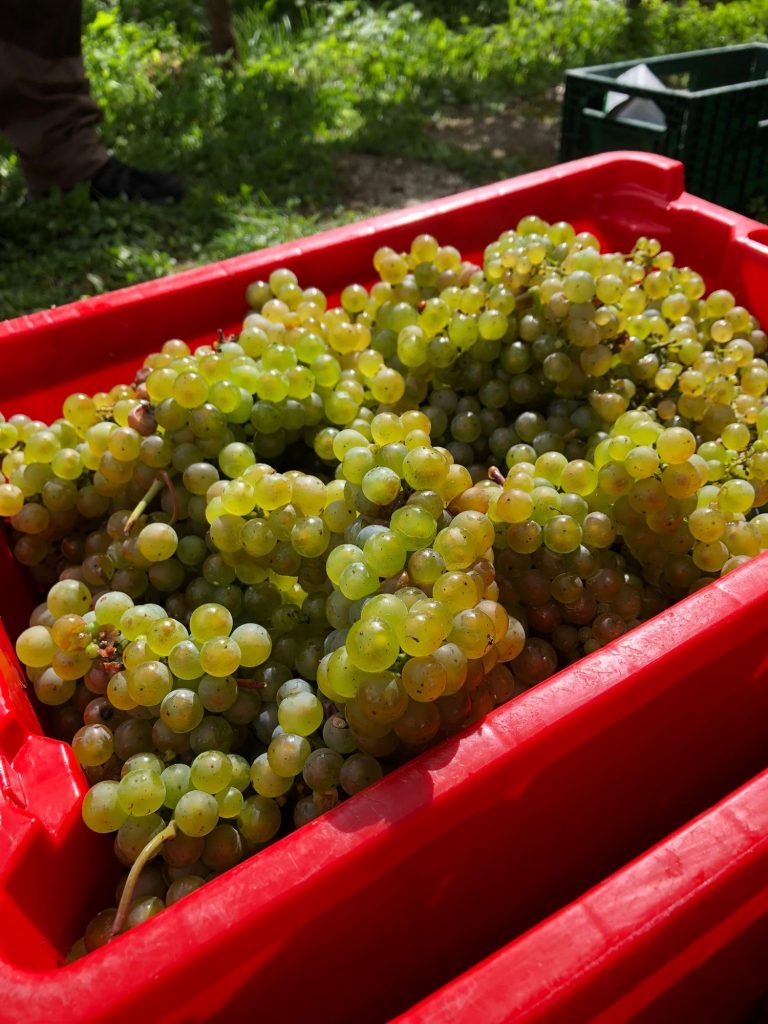
After we finished at the first vineyard, a well-deserved coffee and breakfast was served right there among the vines. While enjoying goodies from a local bakery and butcher, we discussed the vintage quality and learned interesting facts about the vines—their leaves, fruits, and, of course, their potential diseases and how to prevent or treat them.
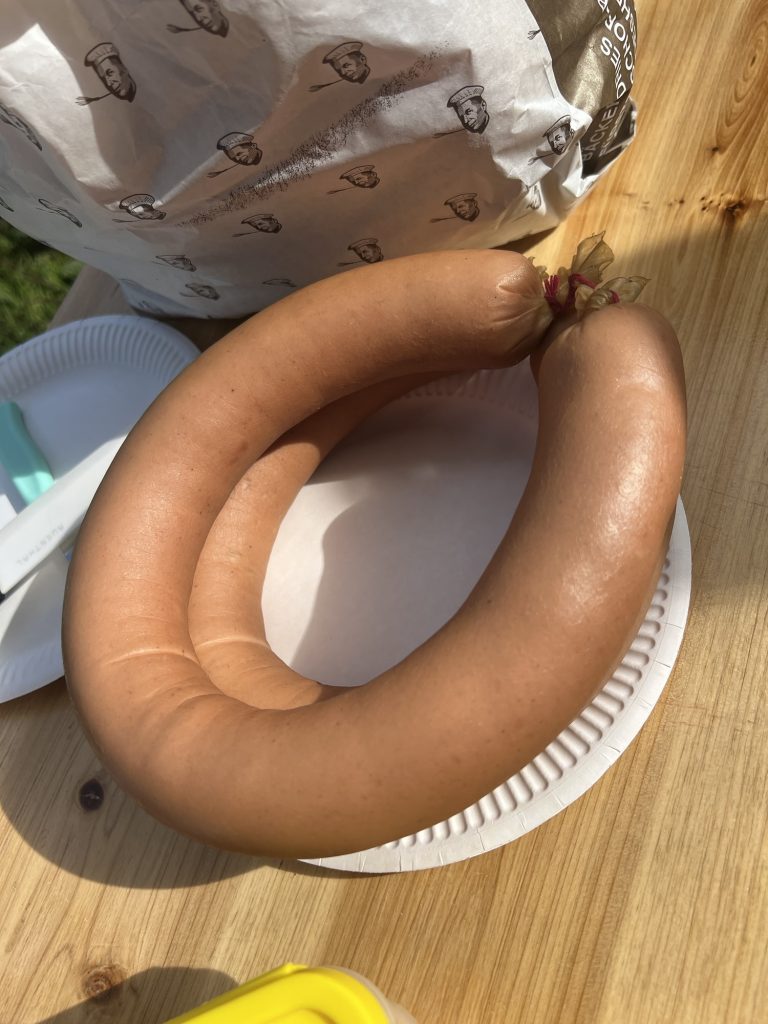
Off to the next vineyard, Edilia, not far away, the harvest continued. This vineyard, while similar in its sunny disposition and meticulously tended rows, presented some notable differences in taste and vegetation.
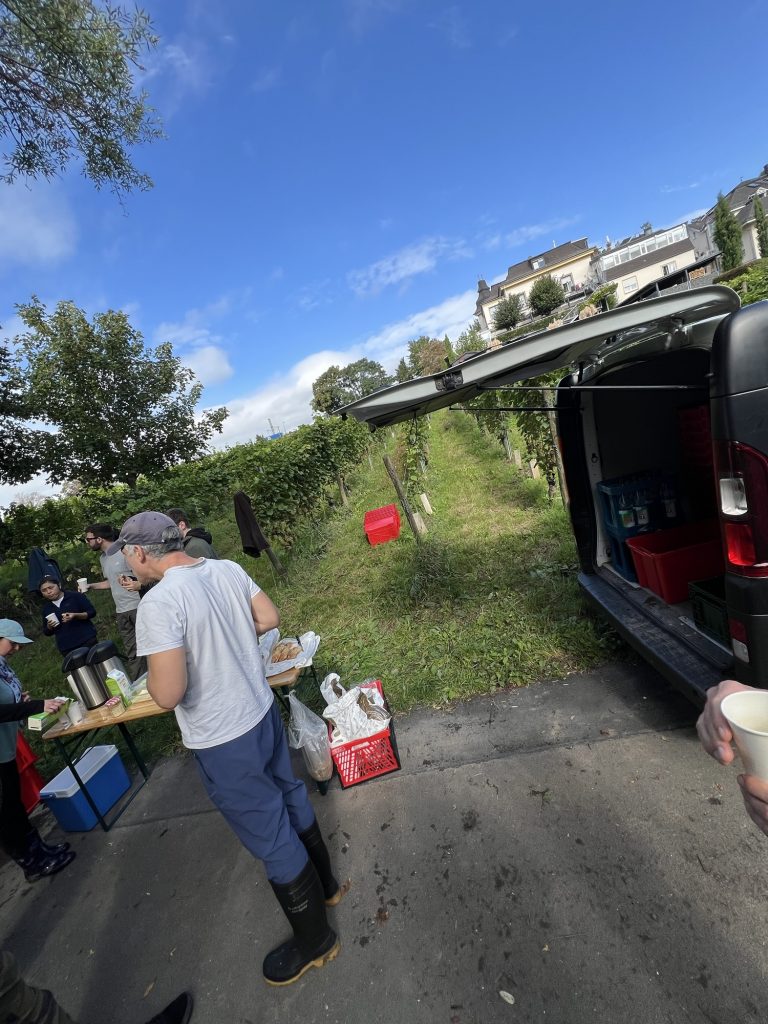
The weather was changeable, but thankfully, the sun broke through and made the day warmer than expected. Luckily, I’d worn shorts—though thankfully not the flip-flops from my very first harvest that everyone still laughs about!
The slightly rainy weather of the past few days had made the grapes soak up water, making an immediate harvest urgent to prevent them from spoiling.
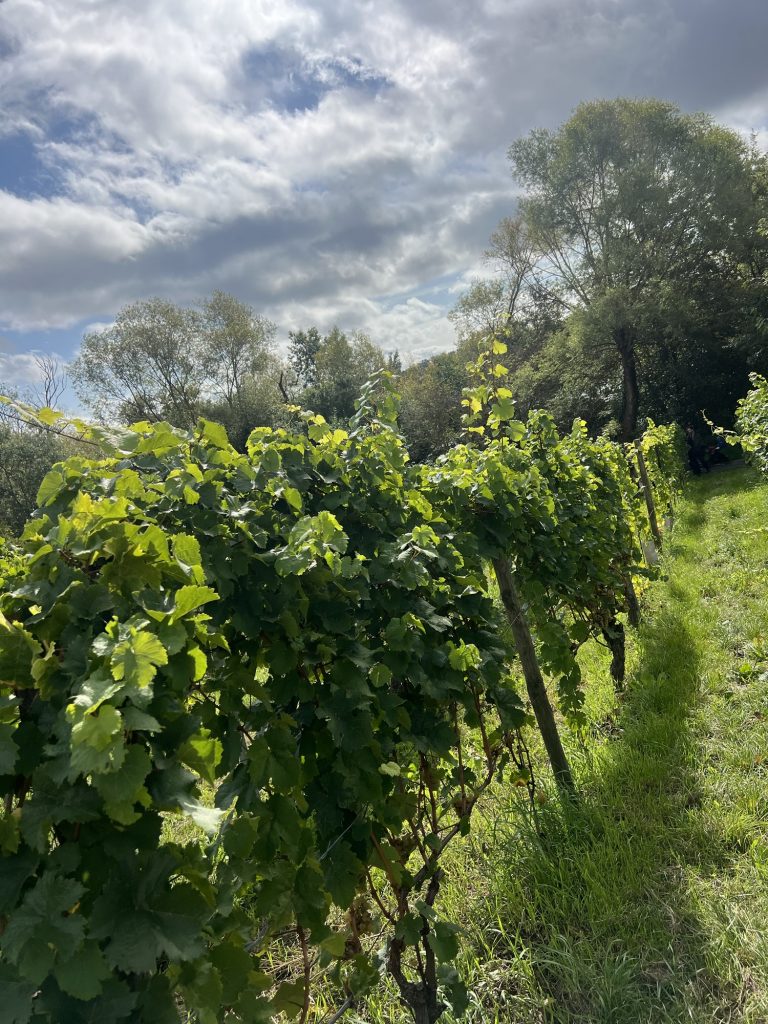
The third vineyard to harvest is special. It is located in the ”garden“ of a living house instead of having an ordinary lawn. The vines where planted decades ago by the father of the house owner. The old lady was so kind to provide Eierlikörpralinen to the harvest crew at the harvest 2023. The vineyard delivers an outstanding quality because of its protected location and microclimate.
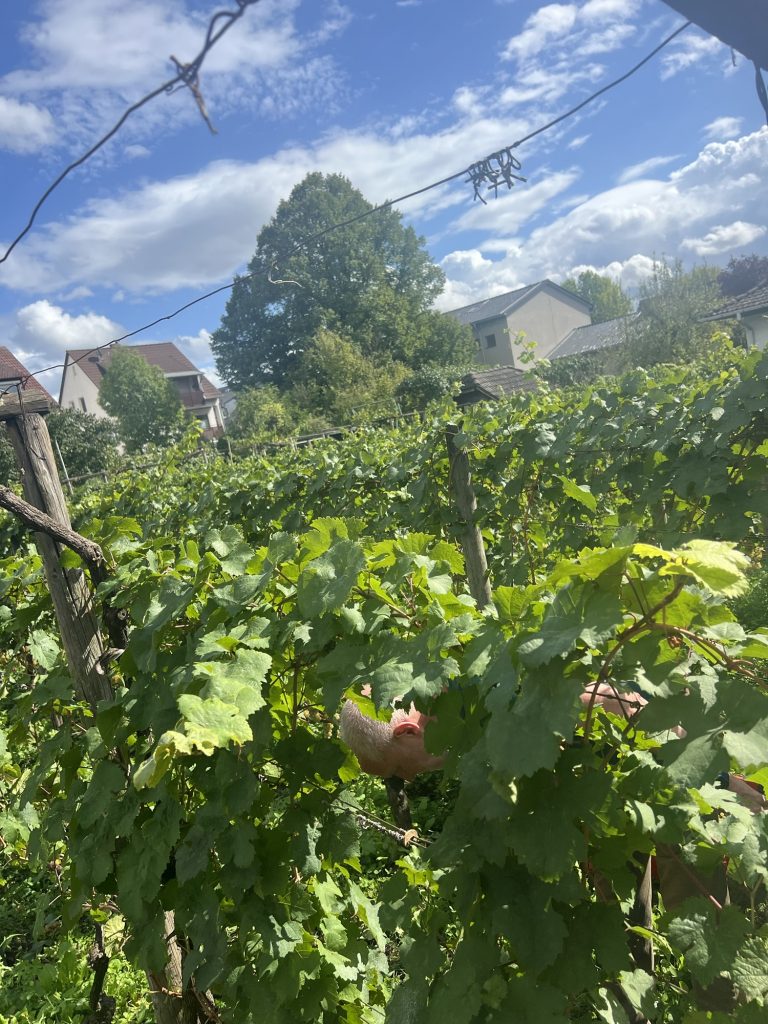
The harvest in the last vineyard will be used for maceration. So no bortrytis berries are wished by Alex. If they cannot be cut out the whole bunch is to be left behind. After the thoroughly work off it goes to the winery.
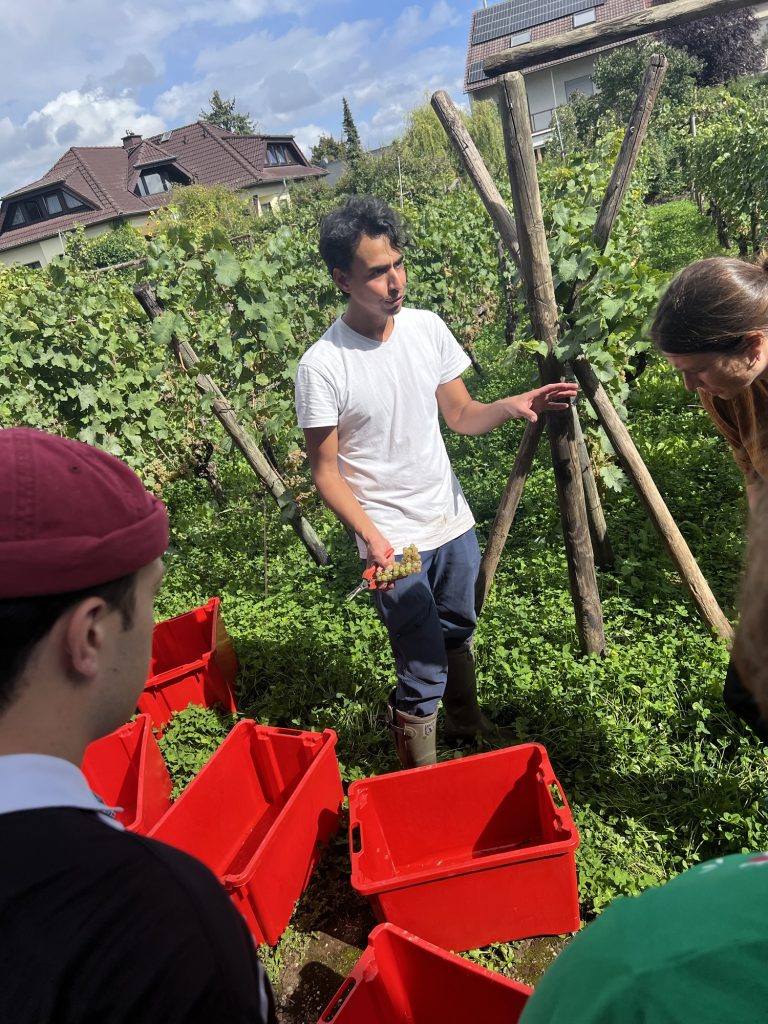
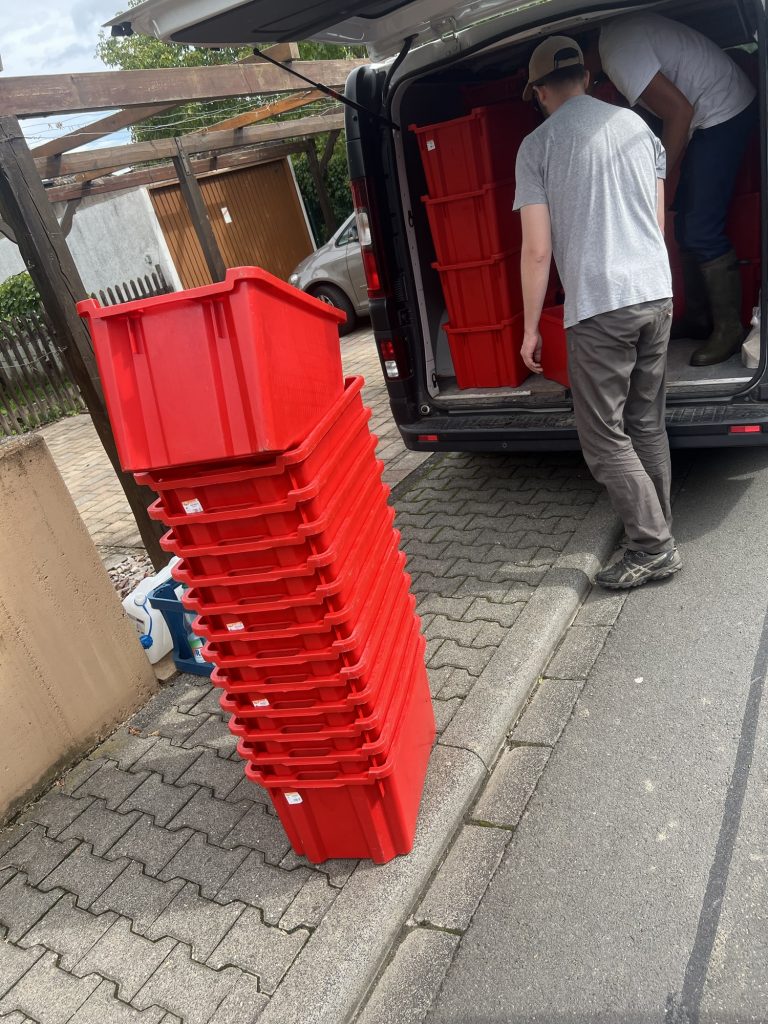
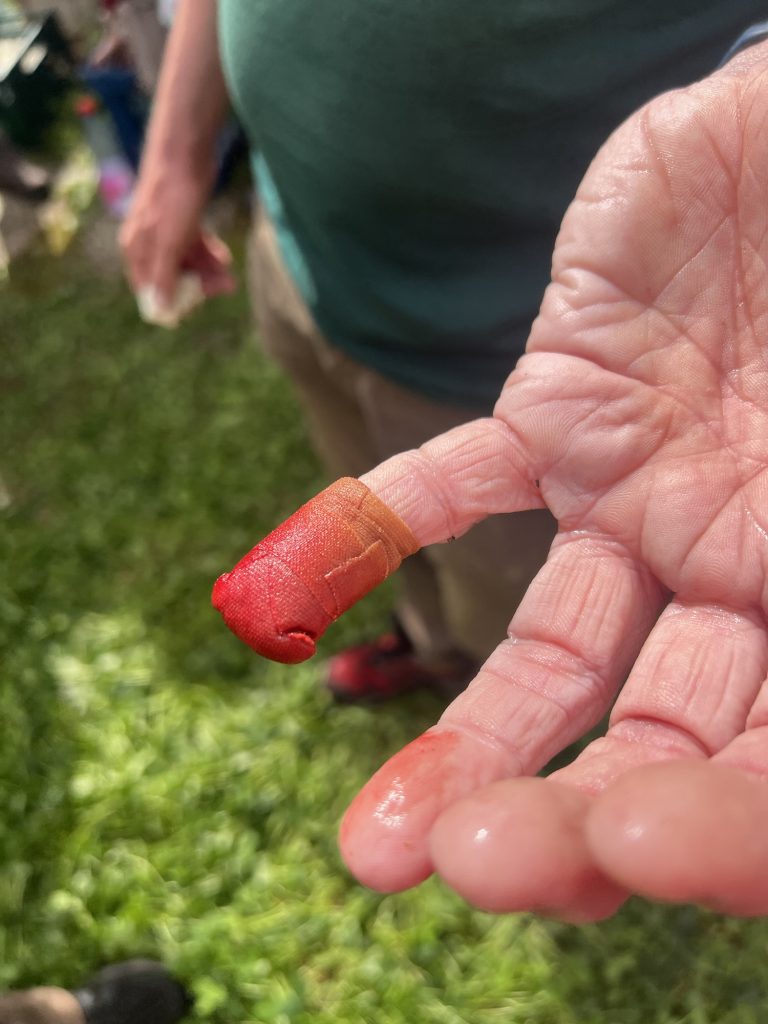
After bringing all the bunches to the yard in front of the cellar, they were foot-stomped (trod) and then moved to a manual wooden press. With slight, continuous pressure, the juice was gently extracted and flowed by gravity through a hose directly into the cellar. We immediately got to taste the fresh juice, which had a delicious flavor, giving us a good, early prediction of how the future wine might taste.
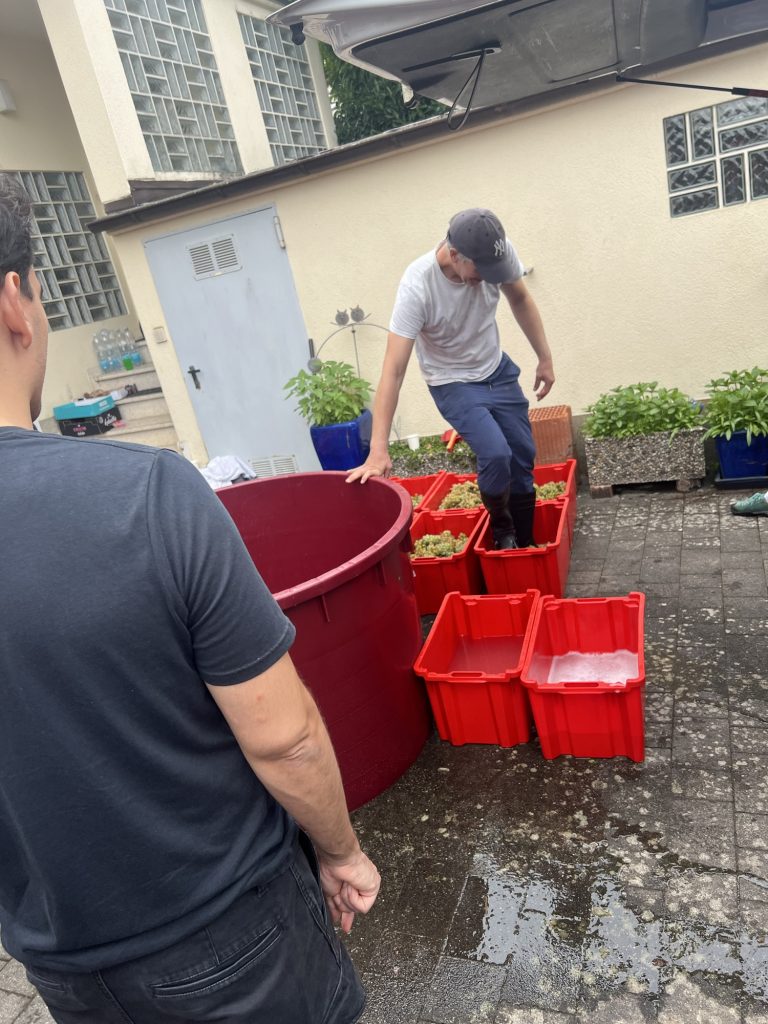
After the press finished extracting the juice, the remaining pomace (or marc) had to be removed. This press cake is not used for Grappa here; instead, it’s used as a natural fertilizer in the vineyard. The resulting press cake is extremely solid, and it takes quite an effort to break it up and scoop it back into the boxes.
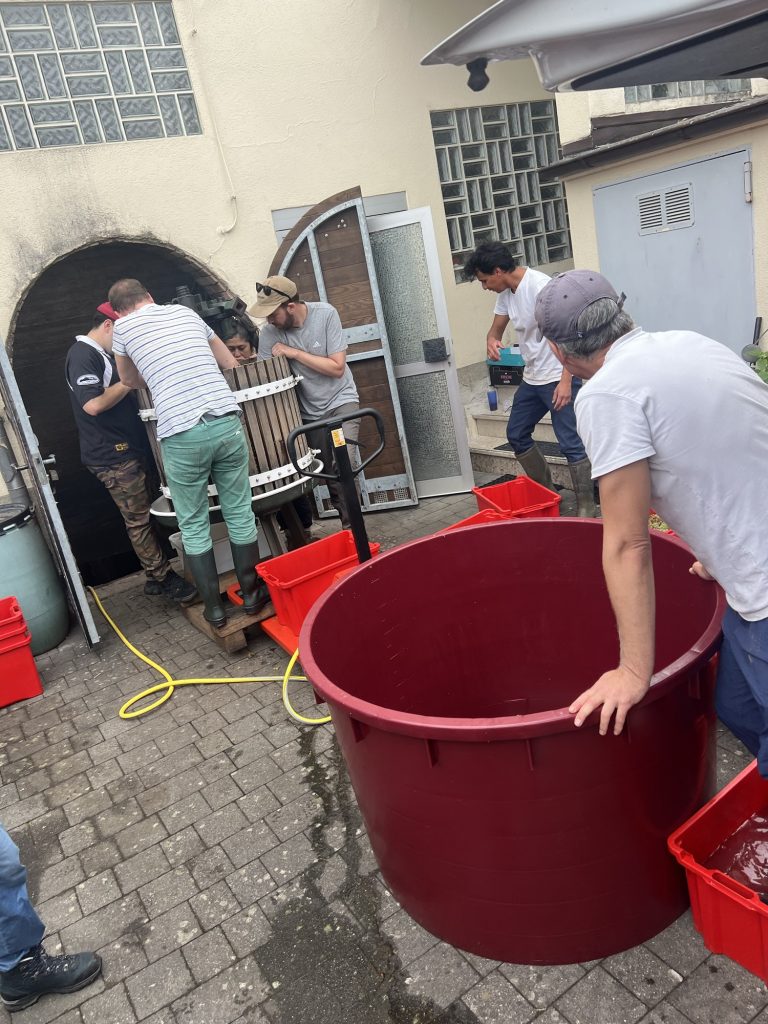
Same: then finally a special goodie. We tastet a bottle freshly released of the first vintage we joined for harvest. Very nice to taste a wine you contributed in such a direct manner. The taste was crisp, fresh, mineral and long lasting. It was already at a good point of matureness after 3 years but still with a potential for ripening
Here an explanation how Alex found the names for his different wines. The name for the vineyard below the Basilika was derived from the fact that the grapes for this wine came from one of his youngest vineyards, which is literally located in the shadow of the oldest church in the Rheingau: the St. Ägidius Basilica.
Edilia is the name of Alex Saltaren Castro’s grandmother, who played a central role in his childhood. It is also an allusion to La Pachamama (Mother Earth), an important goddess in the indigenous cultures of his native Latin America. This naming reflects his commitment to natural production and minimal intervention in winemaking.
The grapes for the Labeja wine come from the famous Rheingau vineyard site, Mittelheimer St. Nikolaus. The name is a direct designation for the wine made from this specific, well-known German vineyard location. Abeja is the Spanish word for bee, an allusion to the many bees living in the vineyard.
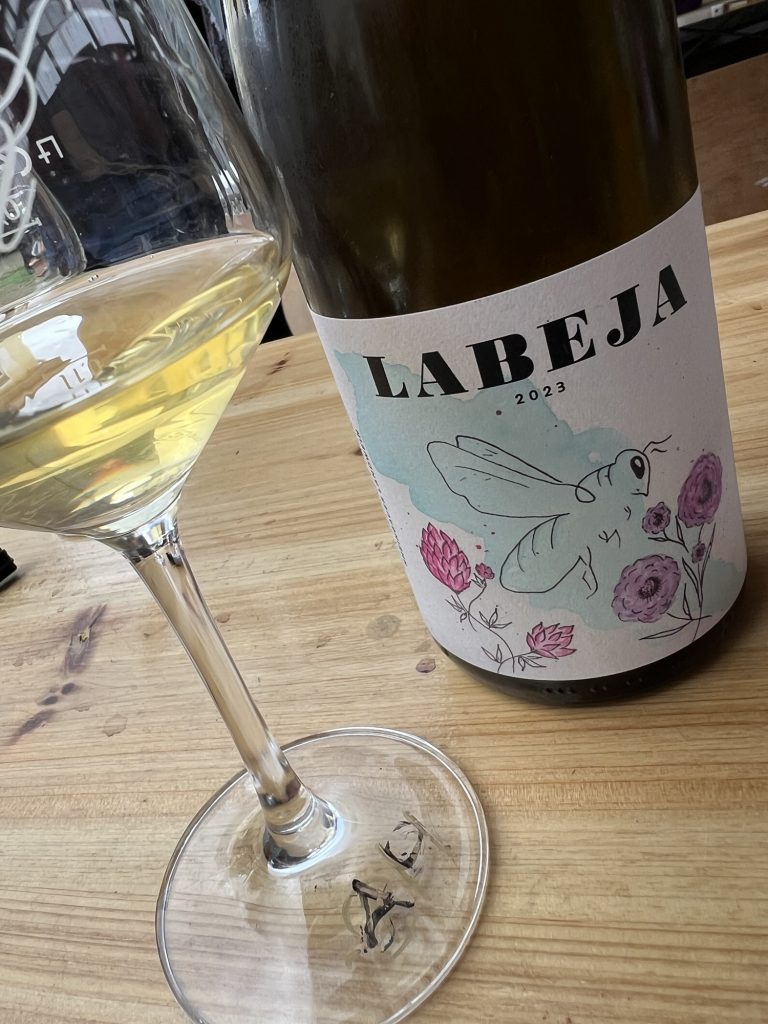
As you can see, we’re a group of ultra-enthusiastic wine lovers at work! It’s so much fun being with such a crowd, getting to know everyone’s individual preferences and favorite winemakers. And how lovely is the wine-themed art on this bracelet?
A lovely day is coming to an end, and we’re already looking forward to next year! In the meantime, many good memories and some excellent Saltaren wines will create a solid bridge until then.
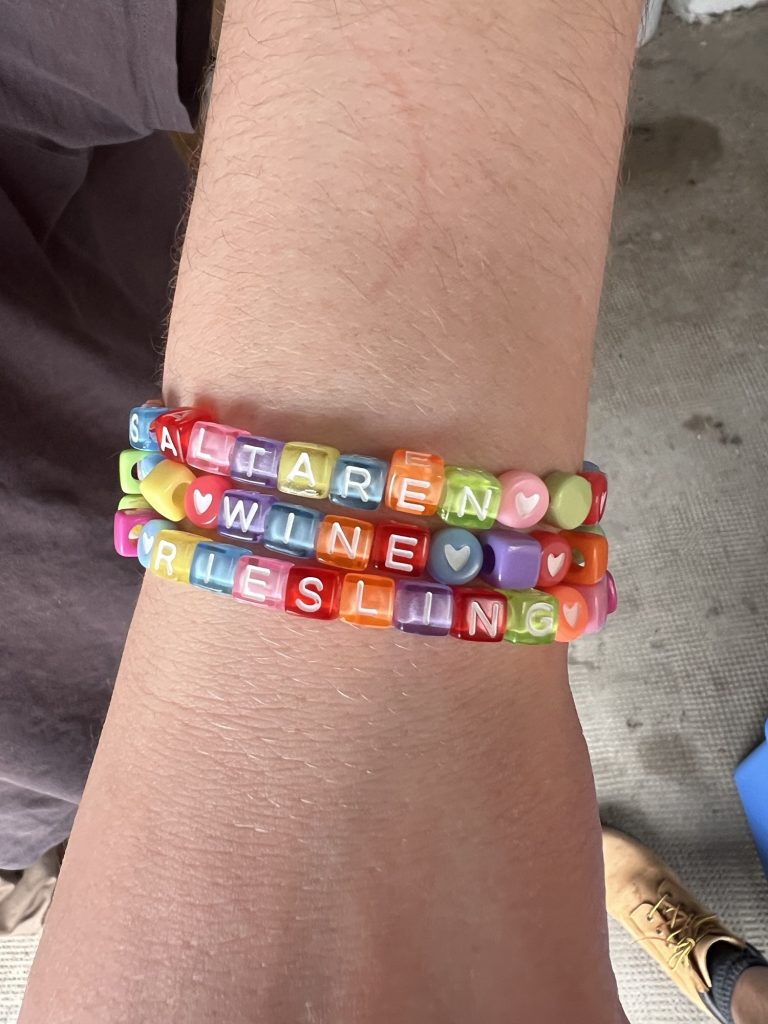
If you want more information and buy some good Rheingau Riesling from Oestrich, then just have a look at the following sources:
Website Saltaren Wines: www.saltarenwines.de
You can find Alex‘ wines here:

